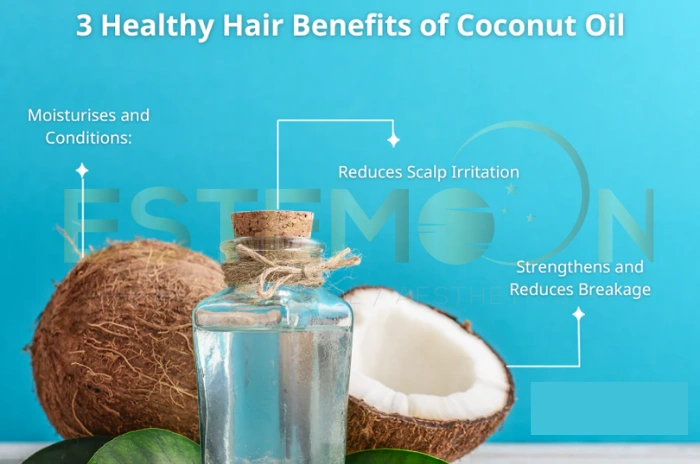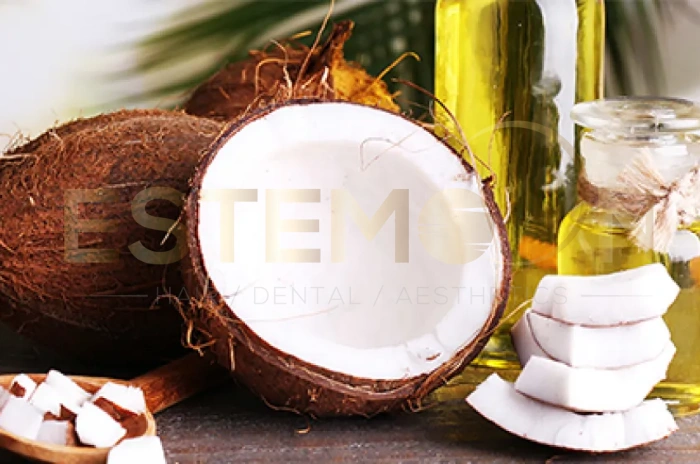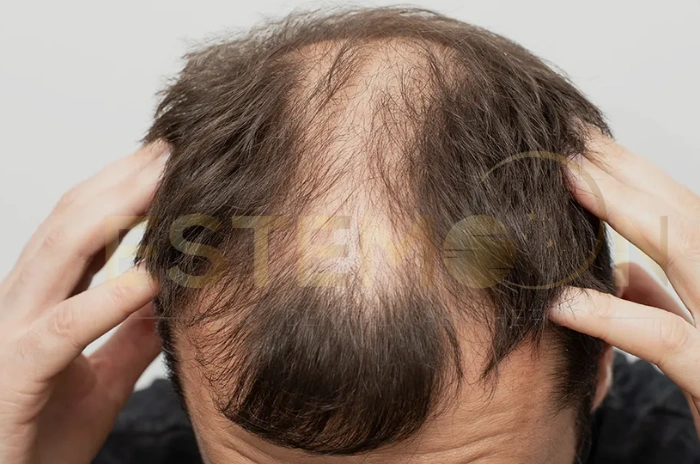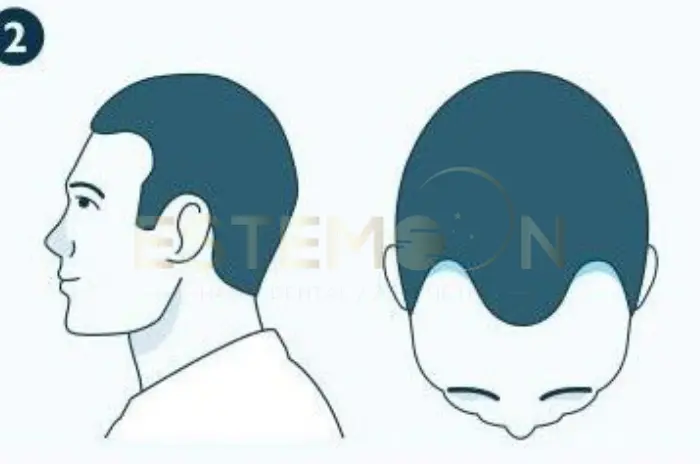Coconut oil for hair has become one of the most popular natural treatments for achieving healthier, stronger hair. This versatile oil offers numerous benefits for both hair strands and scalp health, making it an essential addition to any hair care routine. From reducing protein loss to treating dandruff, coconut oil provides a natural solution for various hair concerns.
The unique molecular structure of coconut oil allows it to penetrate deeply into hair shafts, providing nourishment from within. Rich in lauric acid for hair, this tropical oil has been used for centuries in traditional beauty practices across different cultures.

Coconut Oil Benefits for Hair and Scalp
Coconut oil for hair offers multiple advantages that make it stand out among other natural hair treatments. The primary benefit comes from its high concentration of lauric acid, which has a low molecular weight that allows it to penetrate hair more effectively than other oils.
The antimicrobial properties of coconut oil help maintain scalp health by fighting bacteria and fungi that can cause various scalp conditions. This makes it particularly effective for those dealing with scalp irritation or infections.
Additionally, coconut oil forms a protective barrier around hair strands, helping to lock in moisture and prevent environmental damage. This protective quality is especially beneficial for those with chemically treated or heat-damaged hair.
Deep Moisturizing Properties
Coconut oil for dry hair works exceptionally well due to its ability to retain moisture within the hair shaft. Unlike many other oils that simply coat the hair surface, coconut oil actually penetrates the cuticle layer.
This deep moisturizing action helps restore elasticity to brittle hair and reduces breakage significantly. Regular use can transform dry, lifeless hair into soft, manageable strands with improved shine and texture.
How Coconut Oil Helps Dandruff and Dry Scalp
Coconut oil for dandruff treatment works through its antifungal properties, specifically targeting Malassezia, the fungus commonly responsible for dandruff formation. The lauric acid content helps eliminate this fungus while soothing scalp irritation.
For those suffering from coconut oil for dry scalp issues, the oil provides immediate relief by delivering deep hydration to the scalp skin. It helps restore the natural moisture barrier that may have been compromised by harsh shampoos or environmental factors.
The anti-inflammatory properties of coconut oil also help reduce redness and itching associated with scalp conditions. Regular application can significantly improve scalp health and reduce flaking over time.
Application for Scalp Health
When using coconut oil for scalp treatment, gentle massage is crucial for optimal results. The massage action improves blood circulation while the oil provides necessary nutrients to hair follicles.
Start with small amounts and gradually increase based on your scalp’s response. Some people may experience initial purging as the scalp adjusts to the treatment, but this typically resolves within a few applications.
Best Ways to Use Coconut Oil in Your Routine
Incorporating coconut oil for hair into your routine requires understanding the best application methods for your specific hair type and concerns. Different techniques work better for different hair textures and conditions.
How often to use coconut oil on hair depends on your hair’s porosity and condition. Fine hair typically benefits from once-weekly treatments, while thick or coarse hair can handle more frequent applications.
The timing of application also matters significantly. Prewash coconut oil treatment is often the most effective method, as it allows the oil to work its magic before being cleansed away, preventing buildup.
Weekly Treatment Schedule
Create a consistent schedule that works with your hair washing routine. Most people find success with applying coconut oil 1-2 hours before shampooing, allowing adequate penetration time without overnight exposure.
For severely damaged hair, you might benefit from twice-weekly treatments initially, then reducing to once weekly for maintenance. Always monitor your hair’s response and adjust frequency accordingly.
How to Apply Coconut Oil Conditioner Mask and Scalp Treatment
Creating an effective coconut oil hair mask requires proper preparation and application technique. Start by warming the coconut oil slightly until it becomes liquid, making it easier to distribute evenly through your hair.
Begin application at the scalp, using fingertips to massage the oil in circular motions. This massage technique stimulates blood flow and ensures the oil reaches the hair follicles where it can provide maximum benefit.
Work the oil through mid-lengths to ends, paying special attention to areas that tend to be drier or more damaged. Use a wide-tooth comb to ensure even distribution throughout all hair sections.
Step-by-Step Application Process
- Section clean, damp hair into manageable portions
- Apply warm coconut oil starting from the scalp
- Massage gently for 2-3 minutes
- Comb through to distribute evenly
- Cover with a shower cap for enhanced penetration
- Leave on for 30 minutes to 2 hours
- Shampoo thoroughly to remove oil residue
For coconut oil for hair overnight treatments, use lighter amounts and focus mainly on the ends to avoid scalp buildup and potential clogged pores.

Why Coconut Oil Helps Reduce Protein Loss
One of the most significant benefits of coconut oil for hair is its ability to reduce protein loss from hair strands. Research has shown that coconut oil is particularly effective at preventing protein loss both before and after washing.
This protein preservation is crucial because hair is primarily composed of a protein called keratin. When this protein is lost through washing, chemical treatments, or environmental damage, hair becomes weak and prone to breakage.
The molecular structure of coconut oil allows it to form a protective layer around the hair shaft, acting as a barrier against protein-depleting factors. This protection helps maintain hair strength and integrity over time.
Scientific Evidence
Studies have demonstrated that coconut oil outperforms other oils in preventing protein loss. This is attributed to its high affinity for hair proteins and its ability to penetrate the hair shaft effectively.
Regular use of coconut oil can help maintain the hair’s natural protein structure, resulting in stronger, more resilient hair that’s less prone to damage and breakage.
Can Coconut Oil Help Hair Grow Longer
While coconut oil hair growth claims are popular, it’s important to understand how coconut oil actually supports hair growth. The oil doesn’t directly stimulate hair follicles to produce new hair faster than their natural growth rate.
Instead, coconut oil for hair growth works by creating optimal conditions for healthy hair growth. By preventing breakage and maintaining hair health, more of your natural growth is retained rather than lost to damage.
The scalp massage involved in coconut oil application can improve blood circulation to hair follicles, potentially supporting the hair growth process. Additionally, the antimicrobial properties help maintain a healthy scalp environment.
Realistic Expectations
Hair typically grows about half an inch per month regardless of topical treatments. However, by reducing breakage and maintaining hair health, coconut oil can help you retain more length over time.
For those experiencing coconut oil for hair loss due to breakage or scalp conditions, coconut oil can be particularly beneficial in addressing the underlying causes.
Choosing the Right Coconut Oil Products for Your Hair Type
Selecting the appropriate coconut oil product is crucial for achieving optimal results. Unrefined virgin coconut oil for hair is generally considered the best option due to its minimal processing and higher nutrient content.
When comparing refined vs unrefined coconut oil, unrefined varieties retain more of their natural properties, including vitamins and antioxidants that benefit hair health. However, refined coconut oil may be better for those with sensitive scalps.
Cold pressed coconut oil for hair represents the highest quality option, as this extraction method preserves the oil’s natural properties without heat damage. This type typically provides the most benefits for hair treatment.
Product Selection Guidelines
| Oil Type | Best For | Benefits | Considerations |
|---|---|---|---|
| Virgin/Unrefined | Normal to dry hair | Maximum nutrients | Stronger scent |
| Refined | Sensitive scalps | Neutral scent | Fewer nutrients |
| Cold-Pressed | All hair types | Highest quality | Higher cost |
| Fractionated | Fine hair | Lighter texture | Less moisturizing |
Potential Side Effects and Precautions
While coconut oil is generally safe for most people, some individuals may experience coconut oil side effects on scalp. These can include increased oiliness, clogged pores, or allergic reactions in sensitive individuals.
Coconut oil allergy symptoms may include redness, itching, or rash development. If you have known allergies to tree nuts, consult with a dermatologist before using coconut oil on your hair or scalp.
Clogged pores from coconut oil can occur when the oil is used too frequently or in excessive amounts. This is particularly common for those with fine hair or oily scalps who may be more prone to product buildup.
To minimize risks, always start with small amounts and perform a patch test before full application. If you experience any adverse reactions, discontinue use and consult a healthcare professional.
FAQs About Coconut Oil for Hair Tips for Growth and Scalp Care
What are the main benefits of using coconut oil?
The main benefits include deep moisturizing, protein loss prevention, dandruff treatment, and overall hair health improvement through its antimicrobial and nourishing properties.
Can coconut oil help reduce hair protein loss?
Yes, coconut oil is scientifically proven to reduce protein loss from hair strands both before and after washing, helping maintain hair strength and integrity.
Is coconut oil a good deep conditioning treatment?
Coconut oil serves as an excellent deep conditioning treatment due to its ability to penetrate hair shafts and provide lasting moisture and protection.
Can you use it to help hair dandruff?
Coconut oil effectively helps with dandruff through its antifungal properties that target the Malassezia fungus commonly responsible for dandruff formation.
Follow us on social media for updates, tips, and patient success stories:




